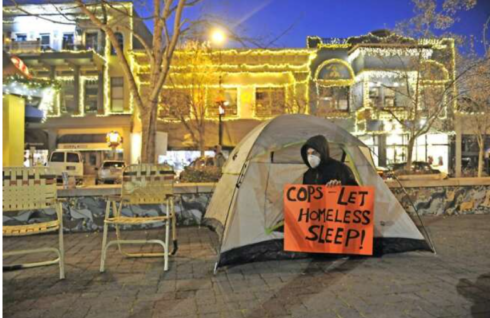“If you want to get laid, go to college. If you want an education, go to the library.”
– Frank Zappa, American musician
How many sex partners do you think your friends have had?
Four? Five?
You’re probably wrong.
Matt Vogel, Southern Oregon University’s health promotion specialist, says he has asked that question of more than 50 groups of students. While most students overestimate the number of their friends’ sexual partners, when asked how many partners they have had the answer is much different: One or none.
Exaggerated beliefs about the quality and quantity of students’ sex lives can be a major problem when you consider how these distorted perceptions might act as a catalyst for others’ behavior. Accurate information can be valuable in helping students make informed and healthy decisions.
A 21-year-old SOU student shared that she has made a personal choice to wait until she is married to have sex. She thinks “hooking up” is a waste of time and emotion. Someone she considered a friend in the past assured her that “friends do it all the time” and pressured her to do things she was not comfortable with.
“Sex is the most intimate you can physically be with another individual,” she said. “I have seen some people lose a sense of who they are and don’t respect themselves when they allow others to disrespect their bodies, which to me isn’t worth the risk.”
Vogel said that sexually active students engage too often in unprotected sex under the influence and therefore typically don’t have conversations about their preferences or expectations. He suggests that sex between young adults today are most likely scripted by porn, which not only disempowers individuals, but is a huge let down and “at the very least is incredibly awkward.” When alcohol is thrown into the mix, said Vogel, the lines of sexual consent are substantially blurred.
“Tons of students have told me they have never had sober sex,” said Vogel.
“Boys and girls in America have such a sad time together; sophistication demands that they submit to sex immediately without proper preliminary talk. Not courting talk — real straight talk about souls, for life is holy and every moment is precious.” ? Jack Kerouac, On the Road
Most of the parents of today’s young adults were raised in a repressive sexual environment, so their approach to sex is uptight. Vogel said sexual discussions should start at home and be enhanced in schools.
Vogel said there are those out there who believe if you talk about sex, it will encourage sexual activity, but he argues that by shrouding sex in secrecy, we are creating an environment for less safe practices.
“We need to work at normalizing the conversation,” said Vogel. “Sex is a part of life.”
Vogel advocates a “harm reduction model” over the abstinence-based model we have utilized in the past. Similar to drug programs that supply needle users with clean needles, he said, we should provide sexually active individuals with ways to be safe.
The health educator said he thinks America has a “fear-based, sex-negative approach” to sexuality which involves a lot of moralistic judgment and finger wagging. He said that while there can certainly be negative consequences of sex, we need to remain aware of the positive aspects of it, too. “Humans are wired for intimacy,” said Vogel.
The U.S. is paradoxically sex-centric and phobic about sexuality at the same time, Vogel said. “It’s in your face all the time, but there is no real information or rational discussion.”
“In America sex is an obsession, in other parts of the world it is a fact.” ? Marlene Dietrich
Even though sex education is more specific in other parts of the world, Vogel said, they’re not panicking in other countries the way we do in America. He pointed out that other countries have a more open approach to sexuality and also have much lower rates of sexually transmitted diseases and abortions. According to the Advocates for Youth website, the percentage of the U.S. adult population diagnosed with HIV or AIDS is six times greater than in Germany, three times greater than in the Netherlands, and one-and-a-half times greater than in France.
Vogel said he feels that we are sending mixed signals when we teach our youth that sex is bad or dirty, but then say that they should only do it with someone they love. He sees this is a precursor to dysfunctional sexual relationships.
“These are just my opinions,” said Vogel, “but they are informed by data.”



